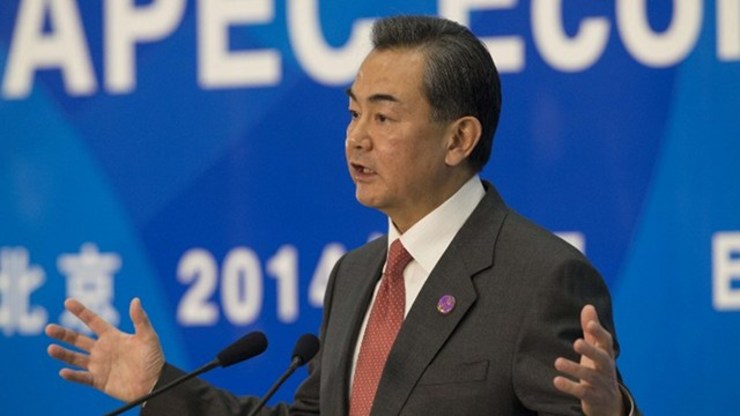The full statement of Philippine counsel Paul Reichler on China's position paper against arbitration, the US study on the 9-dash line, and Vietnam's submission

'IRRELEVANT ARGUMENTS.' The
The Philippines’ legal case against China on the hotly disputed South China Sea sparked renewed interest with recent developments in and out of court.
Beijing snubbed the December 15 deadline to respond to Manila’s pleading.
While foreign policy and legal experts expected this move, a series of events ahead of the deadline prompted a lively discussion:
- The US released a study questioning the legality of China’s 9-dash line
- Vietnam on the same day filed a comment on the case
- China released a position paper detailing its arguments against arbitration
A legal heavyweight, Reichler graduated cum laude from the Harvard Law School and went on to become a premiere public international law practitioner with the US firm Foley Hoag. He specializes in inter-state disputes, and is known for representing small states against what he calls “the rich and powerful.”
For instance, he was counsel for Nicaragua in its historic case against the US, for Mauritius against the United Kingdom, Bangladesh against India, and now the Philippines versus China. (READ: Rough seas: Will PH 'lawfare' work vs China?)

'SIGNIFICANT DEVELOPMENTS.' Philippine counsel Paul Reichler discusses the significant developments related to Manila's arbitration case against China on the South China Sea. Photo courtesy: itlos.org
Here is Reichler’s full statement on the Philippines-China arbitration case:
There have been 3 significant developments in the last 15 days.
First, on December 5, the US State Department published a monograph in its Limits in the Seas series (no. 143) addressing China's maritime claims in the South China Sea (SCS). The study is extremely well done. It makes abundantly clear that China's so-called nine dash line is contrary to international law, and cannot constitute the definition of China's maritime entitlements in the SCS.
Those entitlements are based exclusively on the UN Convention on the Law of the Sea (UNCLOS), which rejects the concept of "historic rights" in the high seas. In any event, according to the State Department study, China has failed to make out a case for "historic rights" even under pre-Convention customary international law. This is consistent with what the Philippines has argued in the arbitration.
Second, on December 7 or 8, China published a legal brief explaining why it believes the arbitral tribunal lacks jurisdiction over the Philippines' claims. This is a remarkable document, whose publication at approximately the same time as its Counter-Memorial was due, is hardly coincidental.
China obviously felt pressured to demonstrate to the international community – and the arbitral tribunal itself, to which China furnished a cop – that it is not an outlaw nation disrespectful of international law.
That said, China's arguments against jurisdiction can easily be refuted by the Philippines. In fact, China has made it easier for both the arbitral tribunal and the Philippines to do their jobs.
The arbitral tribunal will now be fully apprised of China's arguments on jurisdiction, instead of having to guess what they might have been. And the Philippines will now have concrete targets to aim at (and demolish) in future written and oral proceedings.
China has not attempted to defend the legality of the nine dash line. Instead, it has argued only that the arbitral tribunal lacks jurisdiction over the case.
China makes three arguments. Two of them – that the tribunal lacks jurisdiction to resolve territorial disputes, or to delimit maritime boundaries – are entirely irrelevant, because the Philippines has not asked the tribunal to resolve territorial disputes or delimit boundaries.
The other Chinese argument, that the Philippines somehow waived its right to initiate arbitration in 2013 by attempting to negotiate a diplomatic resolution to the dispute in 1995, is legally and factually untenable. The Philippines is confident the arbitral tribunal will find that it has jurisdiction over the case.
Finally, on December 8, Vietnam submitted a Statement of Interest to the arbitral tribunal, in which, in stating its own positions, it completely agreed with the Philippines both on the arbitral tribunal's jurisdiction over the Philippines' claims and the merits of those claims.
The tribunal has furnished the parties with copies of Vietnam's statement.
http://www.rappler.com/nation/78464-reichler-statement-scs-developments

No comments:
Post a Comment
Note: Only a member of this blog may post a comment.